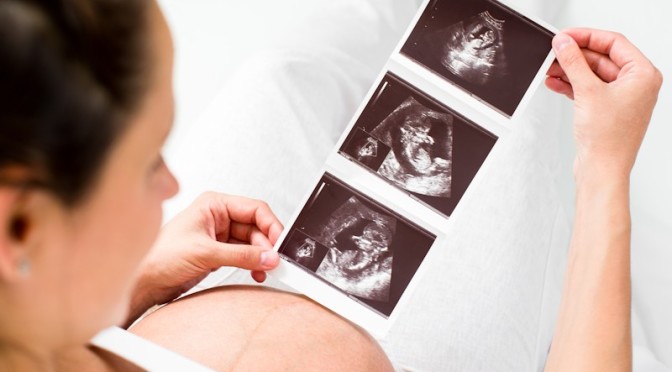After an odd series of events, the ACLU is reviving a lawsuit against a Georgia law that protects unborn babies from painful late-term abortions after 20 weeks, ABC News reports.
Georgia lawmakers passed a 20-week abortion ban in 2012, but the pro-abortion American Civil Liberties Union immediately challenged it, LifeNews reported. The Georgia law bans abortions after 20 weeks of pregnancy based on the scientific evidence showing unborn children feel pain at that point in development, if not sooner.
A judge blocked the law in 2012, but the state appealed. Between 2012 and 2015, there were various court proceedings; and on Oct. 30, 2015, state Superior Court Judge Kimberly M. Esmond Adams granted the state’s request to dismiss the lawsuit, according to the report. Her decision allowed the law to go into effect.
However, both the state and the ACLU appear to have lost track of the case.
This week, ACLU lawyers said they never were informed about Adams’ 2015 decision to dismiss the case, and they want another chance to appeal, according to the report. On Wednesday, Adams granted their request.
The ACLU said a lawyer discovered the decision in March, and they immediately requested information from Adams’ staff, according to ABC.
Here is more from the report:
The judge and a lawyer working with the ACLU speculated the notification may have been lost as a result of a new electronic filing system the court implemented the month Adams dismissed the case.
Keep up with the latest pro-life news and information on Twitter. Follow @LifeNewsHQ
Jennifer Dalven, director of the ACLU’s Reproductive Freedom Project, said after the hearing that they plan to immediately appeal the order and to ask that the law again be suspended while the case is pending.
If the Georgia Supreme Court takes the case, it would hear arguments on the sovereign immunity issue. If the high court decides sovereign immunity does not apply, it would send the case back to Adams to hear the merits of the challenge.
Thirteen other states ban abortion at about 20 weeks after fertilization, said Elizabeth Nash with the Guttmacher Institute, a research group that supports abortion rights. That includes South Carolina, where the governor signed a similar law Wednesday. Such laws have been struck down in Arizona and Idaho.
Georgia was the seventh state to adopt a law banning painful, late-term abortions in 2012. At the time of its passage, Georgia Right to Life president Dan Becker applauded the measure and said it could very well save the lives of more than 1,000 unborn children who die annually from such abortions in his state.
Without the 20 week ban in effect, the state’s law allows abortions for almost any reason throughout all nine months of pregnancy, he said.
Surveys estimated that 1.5% of the 1.2 million annual abortions in the United States are performed on children at 19 weeks after fertilization, or older. That amounts to more than 18,000 abortions annually.
The science behind the concept of fetal pain is fully established; and Dr. Steven Zielinski, an internal medicine physician from Oregon, is one of the leading researchers into it. He first published reports in the 1980s to validate research showing evidence for it.
He testified before Congress that an unborn child could feel pain at “eight-and-a-half weeks and possibly earlier” and that a baby before birth “under the right circumstances, is capable of crying.”
He and his colleagues Dr. Vincent J. Collins and Thomas J. Marzen were the top researchers to point to fetal pain decades ago. Collins, before his death, was Professor of Anesthesiology at Northwestern University and the University of Illinois and author of “Principles of Anesthesiology,” one of the leading medical texts on the control of pain.
“The functioning neurological structures necessary to suffer pain are developed early in a child’s development in the womb,” they wrote.
“Functioning neurological structures necessary for pain sensation are in place as early as 8 weeks, but certainly by 13 1/2 weeks of gestation. Sensory nerves, including nociceptors, reach the skin of the fetus before the 9th week of gestation. The first detectable brain activity occurs in the thalamus between the 8th and 10th weeks. The movement of electrical impulses through the neural fibers and spinal column takes place between 8 and 9 weeks gestation. By 13 1/2 weeks, the entire sensory nervous system functions as a whole in all parts of the body,” they continued.








